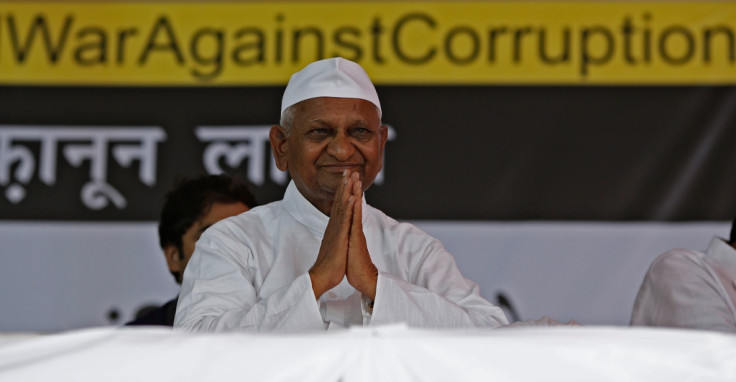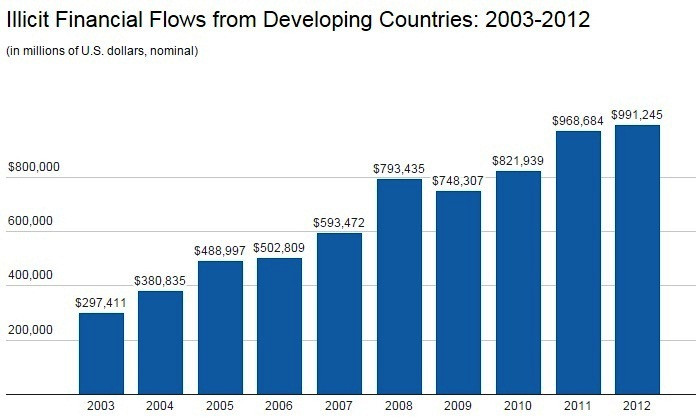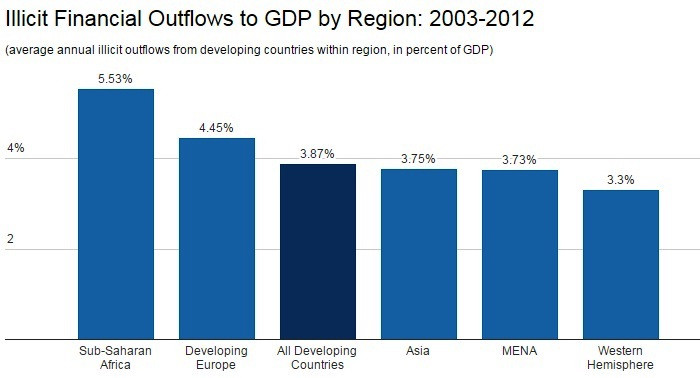Developing world losing record $1tn a year in 'dirty money': GFI
$991bn in unrecorded funds left 151 developing and emerging economies in 2012.

Corporate tax evasion and corrupt practices drained nearly $1tn from poor and middle-income nations in 2012, with the departure of the so-called "dirty money" hitting some of the world's poorest regions, according to a report.
A record $991bn (£634bn, €797bn) in unrecorded funds disappeared from 151 developing and emerging economies in 2012, up 5% from a year earlier, according to US-based anti-corruption watchdog Global Financial Integrity (GFI).

The estimated amount of illicit funds moved out of developing countries totalled $6.6tn between 2003 and 2012, and rose at an inflation-adjusted 9.4% a year — roughly double of the global GDP growth, according to GFI's sixth annual report.
Fraudulent mis-invoicing of business transactions was the most widespread method to shift money illegally and accounted for about 78% of illicit outflows in 2012.
Money is moved overseas through trade mis-pricing by fraudulent underbilling or through over-invoicing for goods to avoid tax or to hide large transfers.
The findings
China, Russia, Mexico, India and Malaysia saw the largest outflow of dirty money in 2012 as well as over the decade

As a percentage of GDP, Sub-Saharan Africa suffered the biggest loss of illicit capital. Illicit outflows from the region averaged 5.53% of GDP annually. Globally, illicit financial outflows averaged 3.9% of GDP.
According to the report, Sierra Leone, Liberia and Guinea saw nearly $1.4bn leave to illicit flows in 2012, the year before the Ebola outbreak began. In contrast, the three countries spent less than $300m on public health that year.
Asia was the region of the developing world with the greatest flow of dirty money over the decade, accounting for 40.3% of the world total, driven by China.
The Philippines, still struggling to recover from Typhoon Haiyan, lost nearly $10bn in illicit outflows in 2012. The Southeast Asian nation's loss was over 10 times the disaster relief aid it received.
Researchers also found growth of illicit flows was faster in other parts of the world, particularly in the Middle East and North Africa and in sub-Saharan Africa, where it was seen at 24.2% and 13.2% respectively.
Experts' take
GFI president Raymond Baker said in a statement: "These outflows — already greater than the combined sum of all FDI and ODA flowing into these countries — are sapping roughly a trillion dollars per year from the world's poor and middle-income economies.
"...It is simply impossible to achieve sustainable global development unless world leaders agree to address this issue head-on. That's why it is essential for the United Nations to include a specific target next year to halve all trade-related illicit flows by 2030 as part of post-2015 Sustainable Development Agenda."
Advocacy group Jubilee USA's executive director Eric LeCompte said separately: "The poorest countries in the world are losing more money than they receive in aid. If we take [GFI's] findings seriously, we can address extreme poverty in our lifetimes."
"Countries need resources and if we curb these illicit practices, we can get the money where it's needed most," LeCompte, an expert to UN groups that focus on these issues, added.
© Copyright IBTimes 2025. All rights reserved.






















